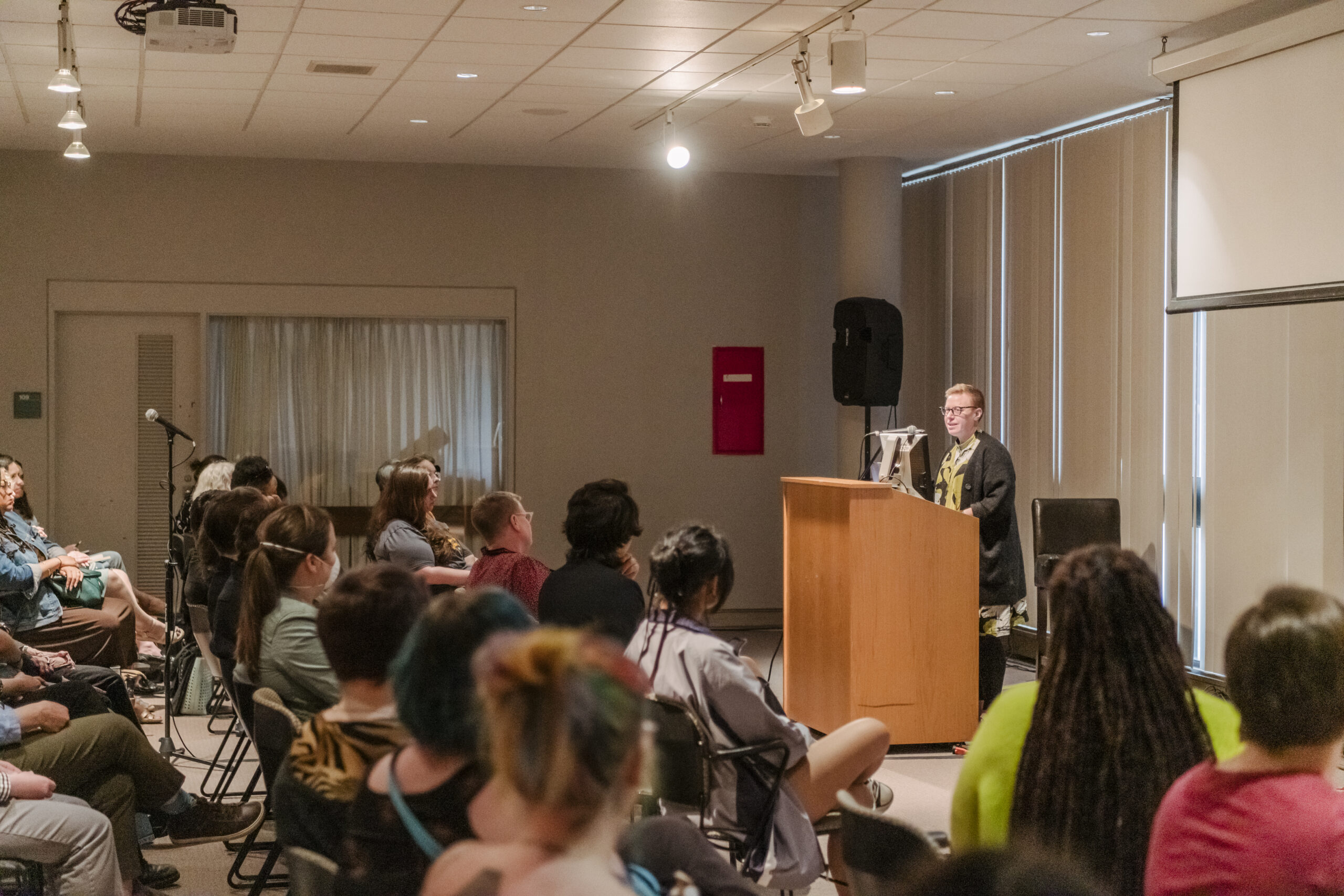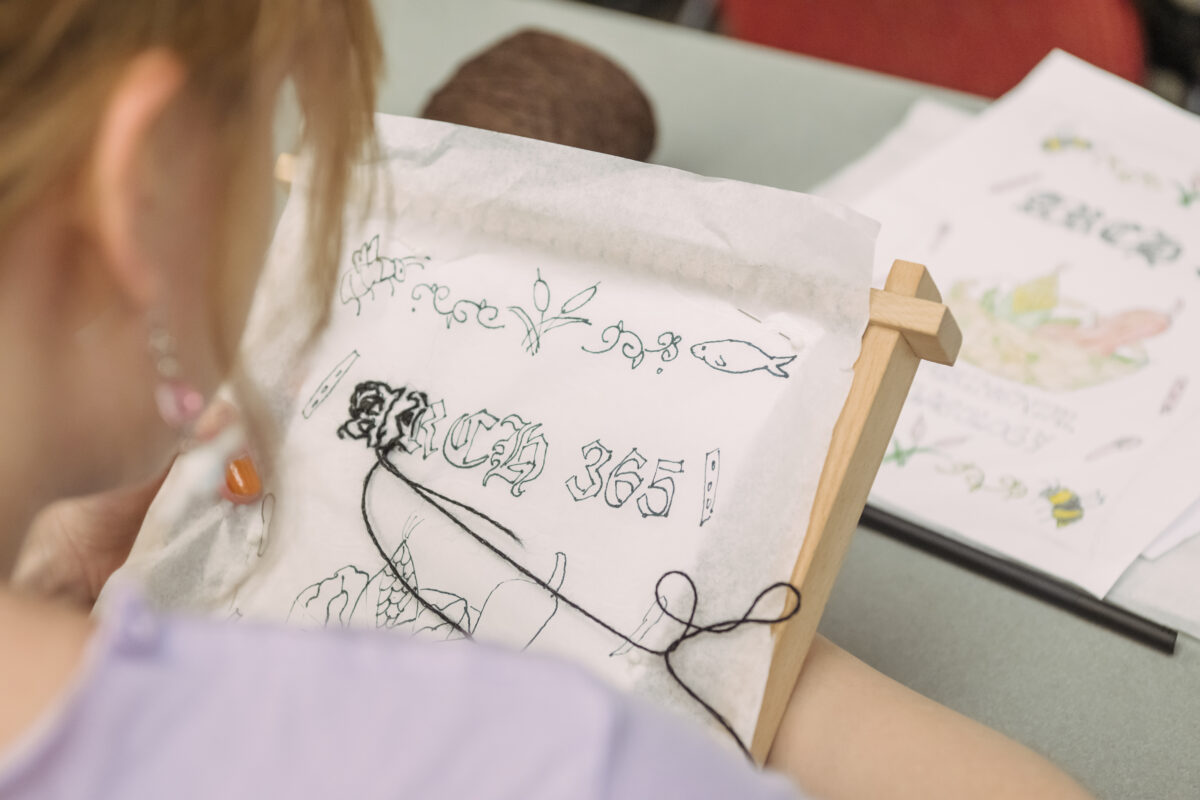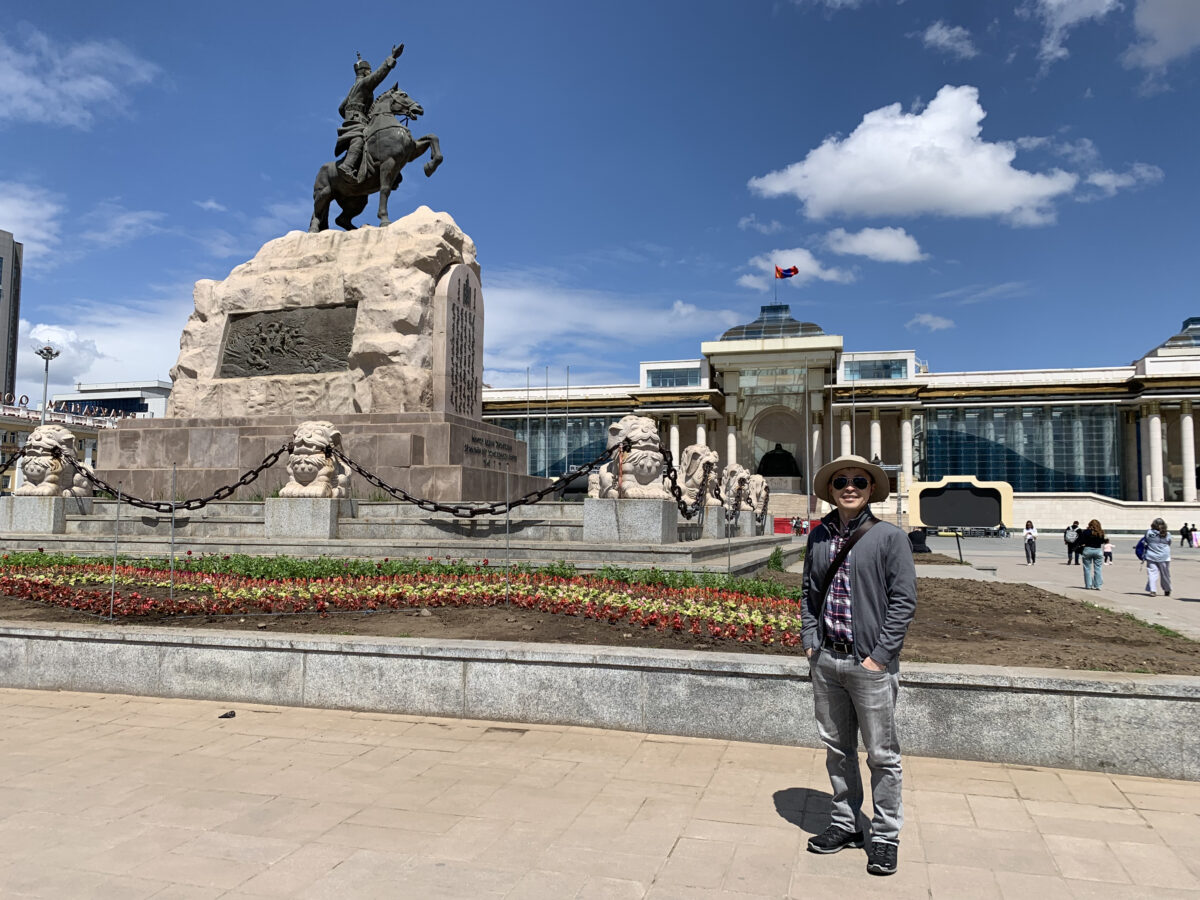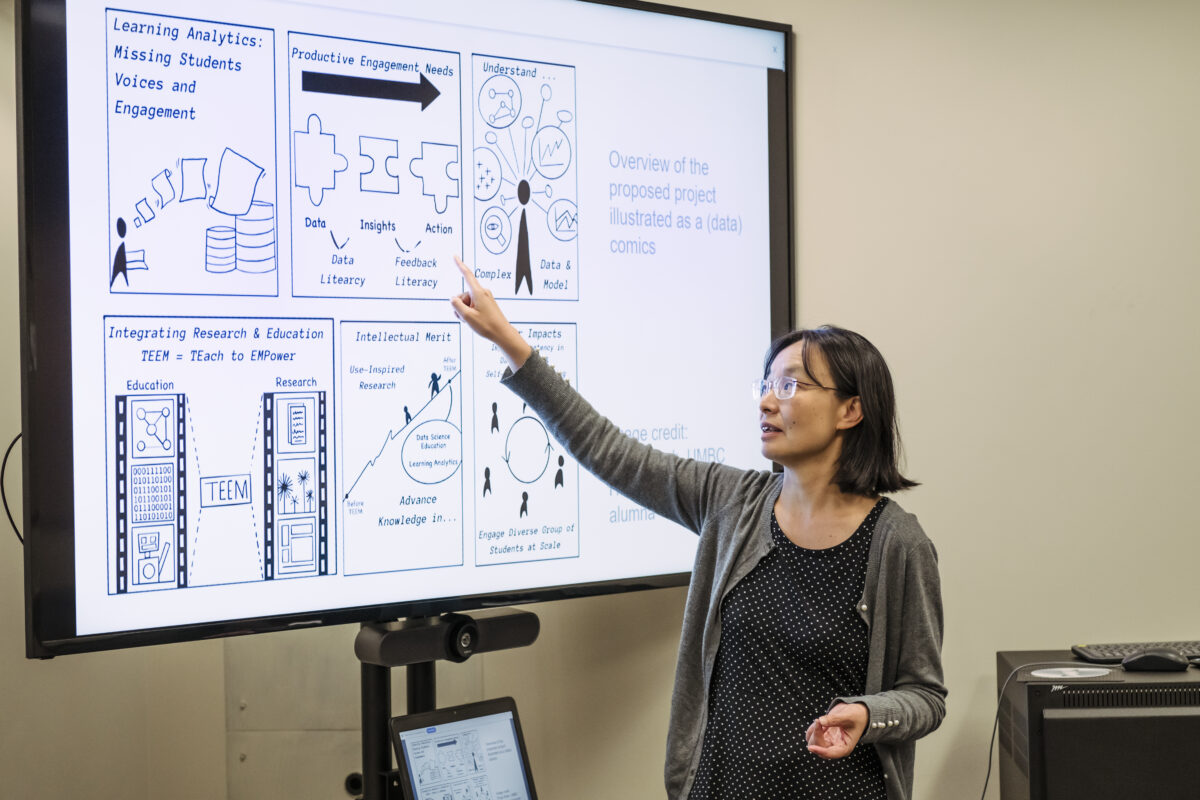UMBC’s Gender, Women’s, and Sexuality Studies (GWST) department has received a $100,000 grant from the Mellon Foundation to implement its Advancing Gender and Sexuality Studies in Community project. UMBC is one of 95 public colleges and university programs leading research on race, ethnicity, gender, or sexuality to receive funding from the Mellon Foundation’s $18 million “Affirming Multivocal Humanities” initiative.
“[The] initiative champions the scholarship and teaching taking place in these disciplines—those that are too often undervalued and even undermined in American society today,” says Elizabeth Alexander, president of the Mellon Foundation. “We are proud to support colleges and universities in the United States advancing deep research and curricular engagement with the stories and histories of our country’s vastly diverse racial, ethnic, and gender identities.”
Advancing GWST
The Advancing Gender and Sexuality Studies in Community project broadens three programs. The UMBC LGBTQ+ Oral History Project, the Korenman Lecture series, and social change-skills development workshops. “This Mellon funding enables our students, faculty, and staff, to further expand our pedagogical and community-building work around critical sexuality studies,” says Vrushali Patil, chair and professor of GWST. “It also enhances how GWST helps realize UMBC’s goal of inclusive excellence.”
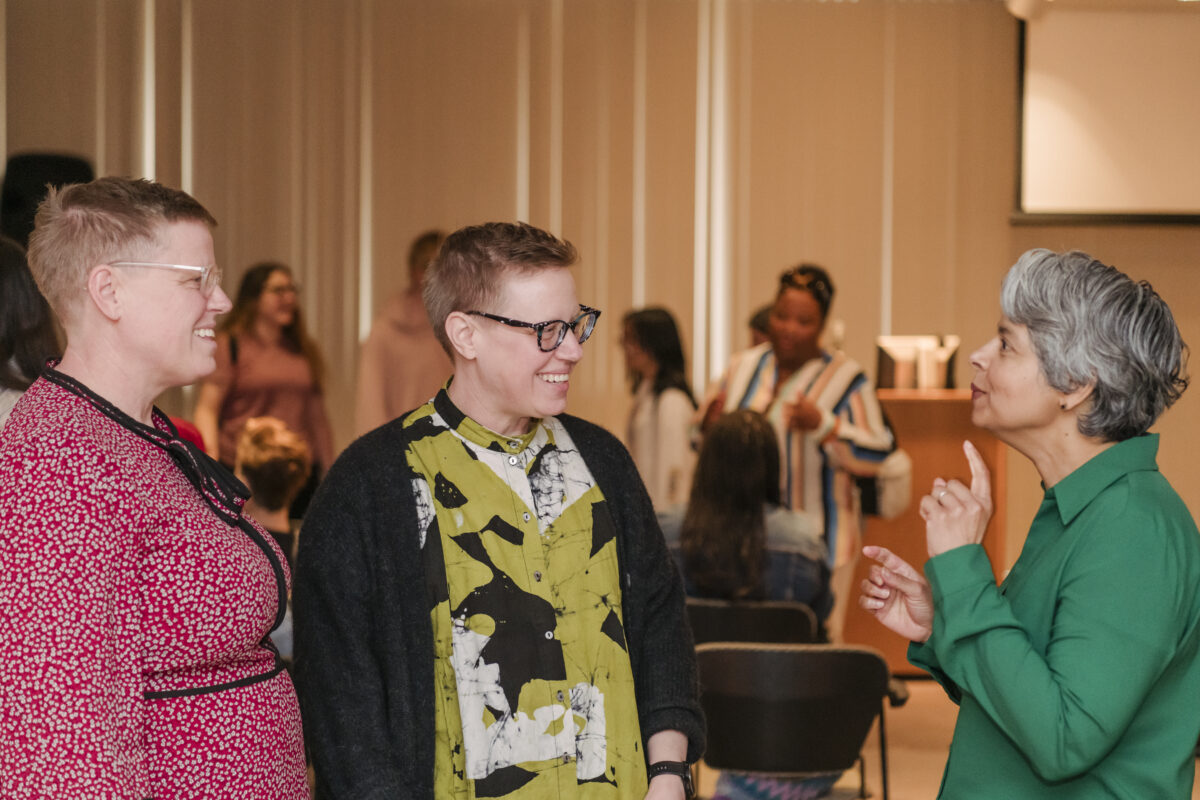
The oral history project trains undergraduate students on oral history interview skills with community members such as the Charm City Kitty Club, a queer femme cabaret; Prettyboi Drag, a queer of color drag king troupe in the Baltimore and Washington, D.C. region; as well as queer UMBC community members. It is archived in the UMBC Albin O. Kuhn Library Special Collection.
“Students are building the oral history archive I wish I had as a researcher in Baltimore queer history,” says co-principal investigator Kate Drabinski, principal lecturer in GWST. “The grant will pay for more basic equipment and training.”
The annual Korenman Lecture series brings scholars, activists, and artists to campus for talks on cutting-edge topics in GWST and includes student workshops on related topics. Over the next three years, GWST will host three additional Korenman Lectures focused on transgender sexual politics, reproductive justice, decolonizing health, and sexuality and the carceral state.
The third program includes six social justice workshops for faculty and students. They will explore approaches to organizing such as running for political office, identifying social justice issues, zine making, and social media for social justice.
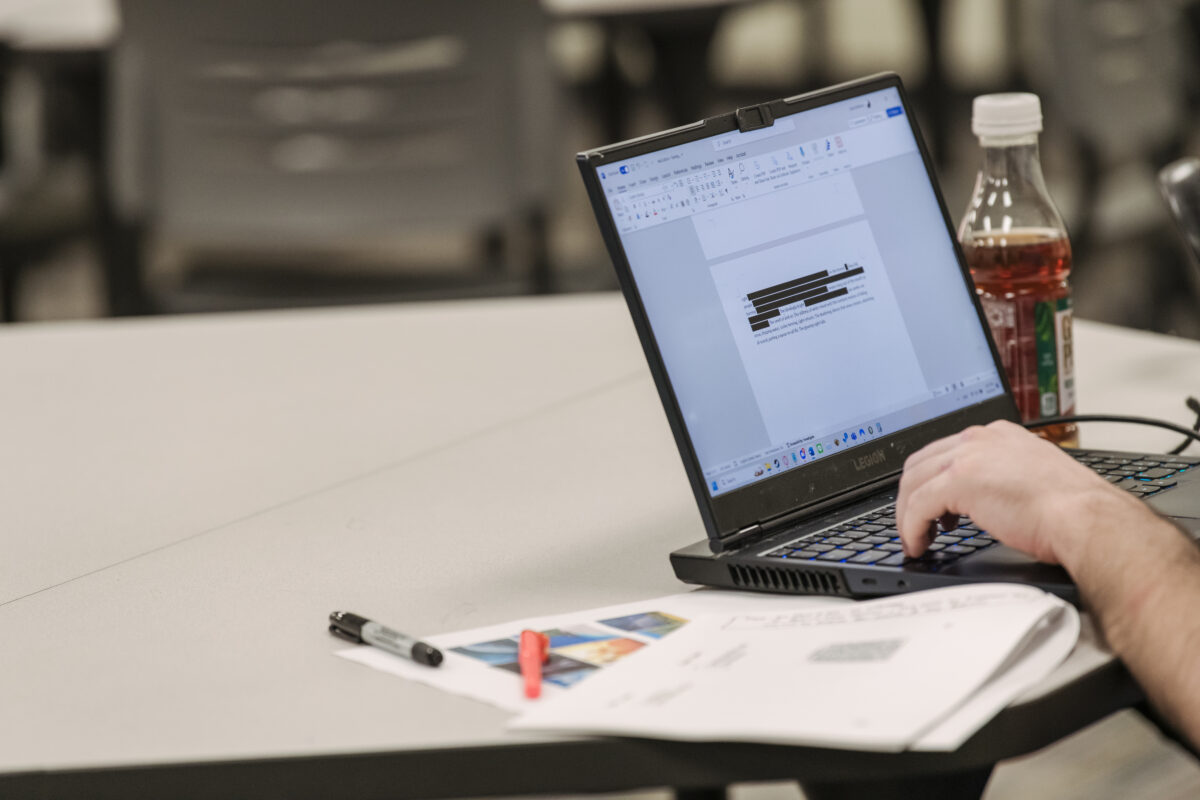
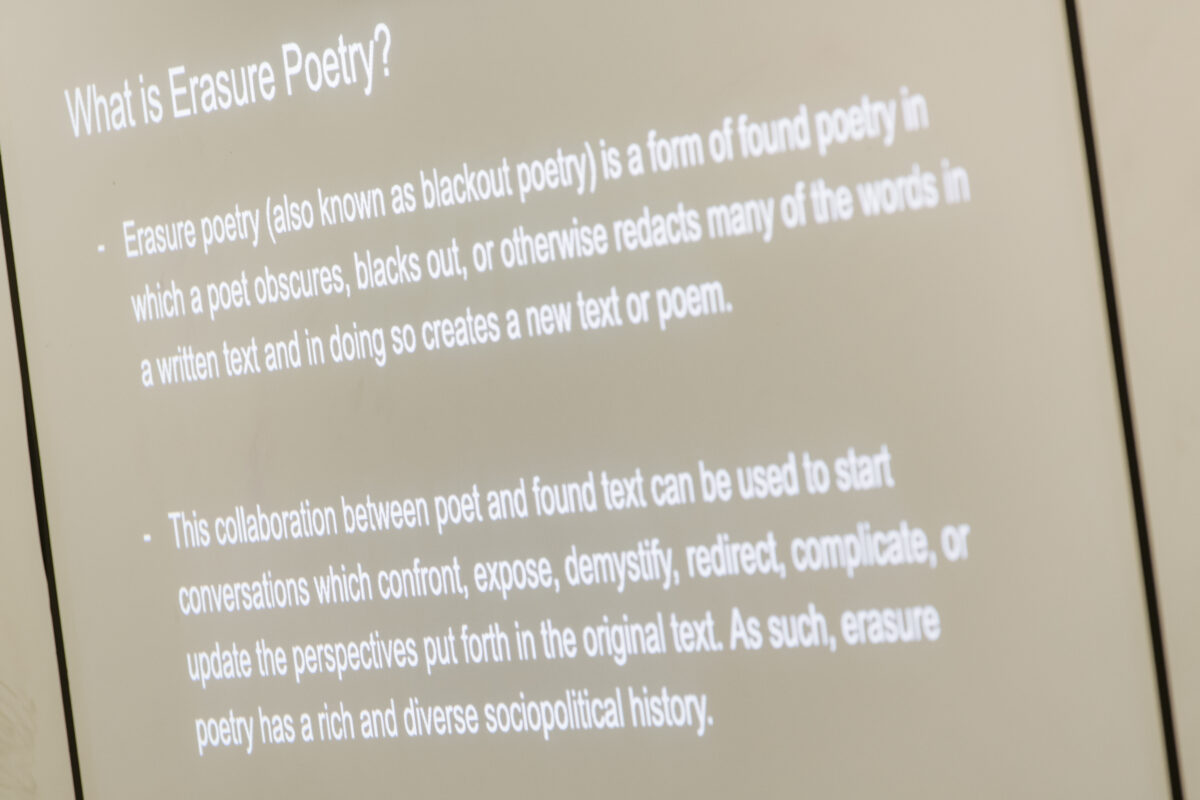
“The Affirming Multivocal Humanities grant provides an incredible opportunity to expand our ongoing work of challenging gender, sexuality, and race-based systems of oppression,” says Carole McCann, principal investigator and professor of GWST.
Additional GWST faculty participating in the grant: María Célleri, assistant professor; and Kathryn Kein, lecturer; and Courtney Cook, visiting lecturer.
Learn more about UMBC’s Gender, Women’s, and Sexuality Studies.

